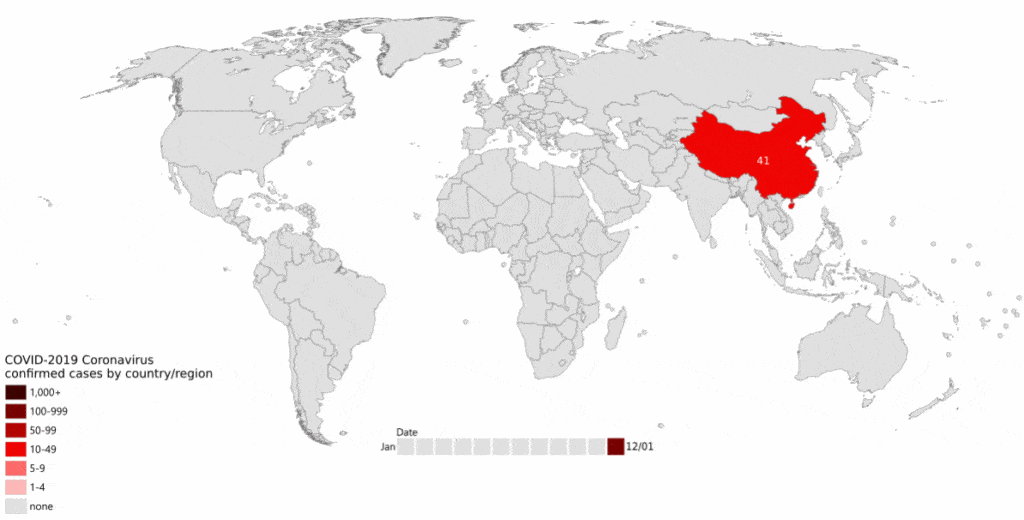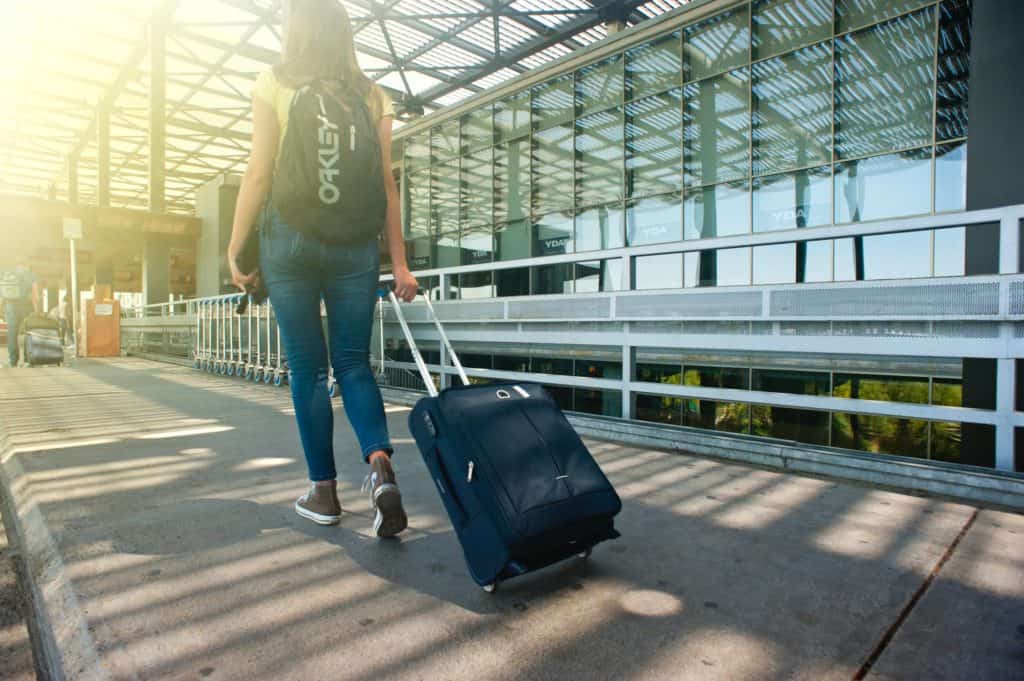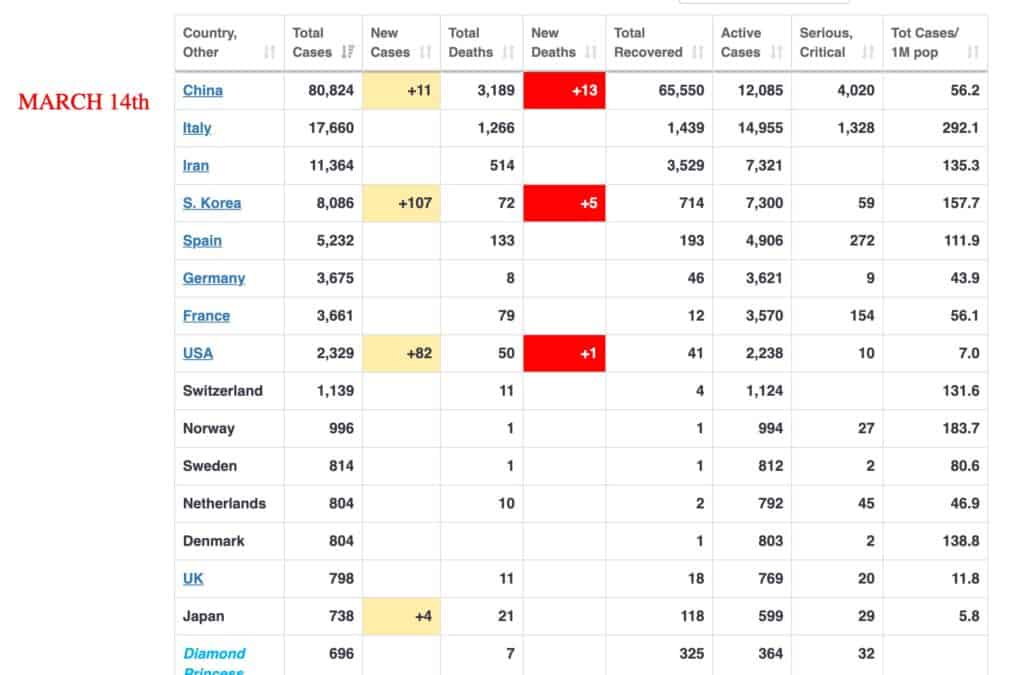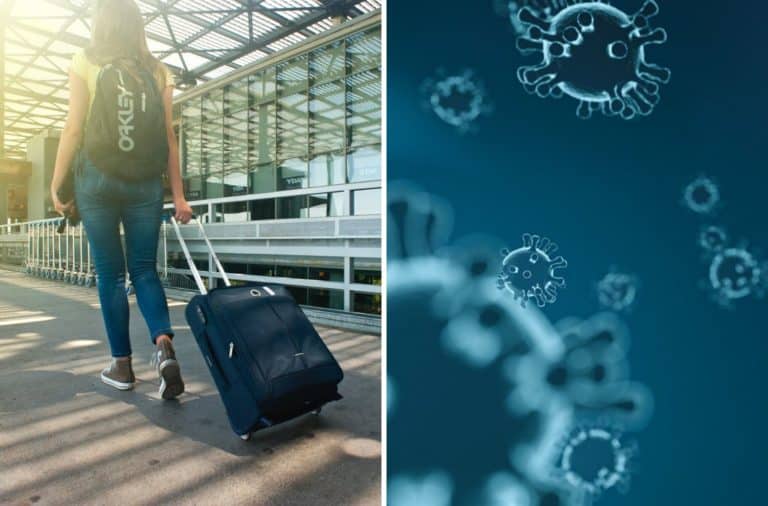DISCLAIMER: This article contains information about the Coronavirus and it’s up to date as of March 14th, 2020. Travelers should always refer to the WHO, their embassy in a given destination or follow local’s government website for most up to date information. The information given in this article is my opinion and should NOT be taken as medical advice.
As the coronavirus continues to sprint around the globe, questions about traveling are atop many minds. People are wondering if they should cancel their travel plans. At this point, with countries declaring emergencies and airlines suspending services, the choice may not even be yours to make.
In an attempt to quell fears and provide facts, we answer common questions about traveling in the age of COVID-19.

The W.H.O. declared coronavirus a pandemic. What does that mean?
On March 11th, the World Health Organization categorized the COVID-19 outbreak as a pandemic, which means it’s a fast-spreading disease that doesn’t yet have a readily available antidote or immunization track. The last time the W.H.O. declared a pandemic it was 2009 when H1N1 influenza hit.

What is the C.D.C. Saying about the coronavirus?
At the time of this writing, the Centers for Disease Control is advising people to curb “all nonessential travel” to locales with Level 3 travel notices, including China, Iran, Italy, and South Korea.
The organization has also cautioned people with chronic conditions and underlying medical problems — including, but not limited to, asthma and diabetes — to avoid countries with Level 2 travel notices, like Japan.
The coronavirus situation is fluid. Officials release new information daily. To stay informed and up to date, check the C.D.C.’s website frequently.
What is the White House saying about the outbreak?
A few days ago, the president of the United States said: “It’s safe to fly, and large portions of the world are very safe to fly. So we don’t want to say anything other than that.” A day later, he announced a ban on Europeans flying to the United States, except for people from the United Kingdom and Ireland. Cargo is allowed, but not European citizens. It remains unclear why U.S. officials exempted the U.K. since it has one of the higher coronavirus counts on that side of the Atlantic.
Note that American citizens can fly back to the United States during the European travel ban, but they will be subject to quarantine upon arrival.
If I do travel, will I be quarantined upon my return?
Always check the most up to date information with your embassy in the given destination or on the local government’s website!
Yes, there is a distinct possibility that people who leave the country may have a rough re-entry. Every day, governments around the world are establishing new quarantine rules. For example, Israel has implemented a 14-day isolation period for anyone entering the country.
So before you decide to travel to foreign lands, think about how a quarantine would affect your life. And remember, you may not be detained at your house or even in your neighborhood. Authorities may send you to a special facility.
Note, however, that some industry experts are calling containment measures “draconian” and unnecessary. Nicholas E. Calio, the chief executive of Airlines for America, a trade association, quipped, “[r]ight now, the fear is almost worse than the virus.”
My employer is enforcing a quarantine policy. What does that mean? Are they allowed?
Many companies are instituting quarantine policies, and yes, they have every right to do so. Some are blocking people who’ve been to infected areas from the office. Others are having workers telecommute. Whichever the case, keep in mind that there isn’t a U.S. law that forces businesses to pay employees in the event of a global medical pandemic.
Many major employers, like Facebook and Ford Motor Company, have instructed employees to cease all air travel and use video conferencing as much as possible.
Why are cruises being hit especially hard by the coronavirus?
If you’ve followed the news, you’re aware that several cruise ships around the world were clobbered by COVID-19 or quarantined for precautionary purposes. As a result, you may be wondering: why are cruises a focal point for the coronavirus?
The answer lies in the nature of cruises: they’re isolated incubators where people live in close proximity for extended periods. As far as contagion goes, cruises are hyperactive Petri dishes. Or, as the C.D.C. put it, cruises “promote the spread of respiratory viruses, such as the virus that causes COVID-19.” Even the U.S. State Department has warned people against traveling by cruise ship.
Notably, representatives from the top cruise lines recently met with the vice president of the United States. They agreed to work with the Department of Health and Human Services, the Coast Guard, and the Centers for Disease Control to develop new screening techniques and procedures.
Will I be refunded if I cancel my travel plans?
 It depends. People who invested in travel insurance may have better luck than people who didn’t. But even then, there’s no guarantee that you’ll recoup the money you’ve already paid. Over the past few days, a lot of people discovered that travel insurance doesn’t kick in if the decision not to travel is rooted in virus fears. The fine print in many travel insurance packages disqualifies government travel warnings as a valid reason to cancel and successfully redeem policies.
It depends. People who invested in travel insurance may have better luck than people who didn’t. But even then, there’s no guarantee that you’ll recoup the money you’ve already paid. Over the past few days, a lot of people discovered that travel insurance doesn’t kick in if the decision not to travel is rooted in virus fears. The fine print in many travel insurance packages disqualifies government travel warnings as a valid reason to cancel and successfully redeem policies.
However, most airlines are accommodating passengers. They’re suspending cancellation fees and allowing customers to re-book for future dates. Jonathan Breeze of AardvarkCompare Travel Insurance said that “at the moment, the airlines are being very helpful.”
But be prepared to wait. Customer service lines are busier than a New Orleans bead seller on Fat Tuesday. People are being quoted several-hour-long hold times. United Airlines’ recorded message bluntly warns customers of the interminable wait. It cautions: “We are receiving more calls than we typically do, and your hold time may be longer than usual.”
I have a cancel-for-any-reason travel policy. Am I covered?
Not necessarily. Yes, people who sprung for cancel-for-any-reason ticket protection have a better chance of being reimbursed if they decide not to travel, but they may not get a full refund. In some cases, you may need to provide a doctor’s note to secure reimbursements. Moreover, some under-writers are now demanding that insurance issuers pull these policies because projection models look bleak.
Keep in mind that online booking sites, like Airbnb and Booking.com, are feeling the economic pinch caused by COVID-19. As a result, they may not be as flexible when it comes to cancellations and find grounds to keep your deposit.
Is it possible that sites may close down?
When weighing whether or not to cancel your travel plans, determine if the place to which you’re headed is even open. Numerous sites are shutting down for an indeterminate future, so there’s little point traveling somewhere if it will be closed when you arrive. Wouldn’t you rather relax at home instead of a germy hotel that may be operating with a skeleton staff?
So far, several amusement parks have shut down; New York has effectively shuttered all Broadway shows by banning gatherings of more than 500 people; and the nation of India, for its part, has completely closed its borders. Italy, one of the worst-hit countries, has closed all operations, except pharmacies and grocery stores.
I have a crucial work trip coming up. Should I chance it and travel?
According to Dr. Scott Weisenberg, an infectious disease doctor at New York University’s School of Medicine and director of that school’s Travel Medicine program, “people need to make an individual decision at this point, weighing the risks and benefits.”
If you have no other option and must travel by plane, go armed with disinfectant wipes and clean everything with which you come into contact, including doorknobs, railings, and public screens.
Gather Information and Then Decide
Individuals must weigh several factors when deciding whether or not to travel during the coronavirus pandemic. Where are you going? How many cases of COVID-19 have been discovered there? How long are you staying? To gather the best information before deciding, make an appointment with a doctor. They’ll conduct a checkup and alert you to any concerns. Moreover, you can get their professional opinion on whether you, in your circumstances, should risk traveling.
How many people currently have coronavirus?

At the time of this writing, approximately 120,000 people in over 100 countries have contracted COVID-19. So far, around 4,500 people have lost their lives to the virus.
Dr. Anthony S. Fauci, the director of the National Institute of Allergy and Infectious Diseases, has warned that “it’s going to get worse.”
Check the current numbers on Worldmeter.com
Things to Consider Before Deciding Whether or Not to Travel During the Coronavirus Outbreak
Always refer to WHO website for most UP TO DATE information about coronavirus.
1. Widespread testing is still not available in many places. That means many people may be walking around infected with COVID-19 and not even realize.
2. Several states have declared public health emergencies, including California, Florida, Hawaii, Illinois, Indiana, Kentucky, Maryland, New Jersey, New York, Ohio, Oregon, Utah, and Washington.
3. Health care experts predict an inevitable spread. Some estimates say that 150 million people in the United States will ultimately catch the virus.
4. On the bright side, remember that the majority of people who contract COVID-19 don’t become seriously ill. Only a small percentage of infected individuals need intensive care. Out of that pool, an even lower portion die from the disease. The reason health officials are worried, though, is because there isn’t a vaccine yet.
5. Authorities want people to practice “social distancing,” which essentially means staying away from other people. Instead of heading out for drinks with the gang, stay home, binge shows, and text with the gang.
How to Best Protect Yourself and Family from COVID-19
Always refer to WHO website for most UP TO DATE information about coronavirus.
1. Wash your hands, and then rewash them! Scrub with soap for at least 20 seconds. Also, keep your hands away from your face as much as humanly possible. Hand sanitizers with at least a 60 percent alcohol solution also work.
2. Stay away from sick people, and stay home if you’re sick.
3. A face mask probably won’t do much if you’re not ill already. Most are too loose to prevent virus inhalation. However, health care workers and first responders need the masks! So don’t make like a hoarder and buy every box at your local hardware store.
4. Stock up on home essentials in case officials quarantine your neighborhood. They usually give people a few days between announcing and enacting containment protocols, but if everyone is rushing to the store at the same time, you may miss out. Don’t forget to stock up on soap, detergents, and, if necessary, diapers and incontinence products.
5. Embrace your inner obsessive-compulsive and clean, clean, clean! Use that bleach! Scrub those counters! Turn your home into a disinfected zone!
We’ve laid out the facts. Now it’s time to decide whether traveling during the coronavirus outbreak is worth it for you. Good luck!

